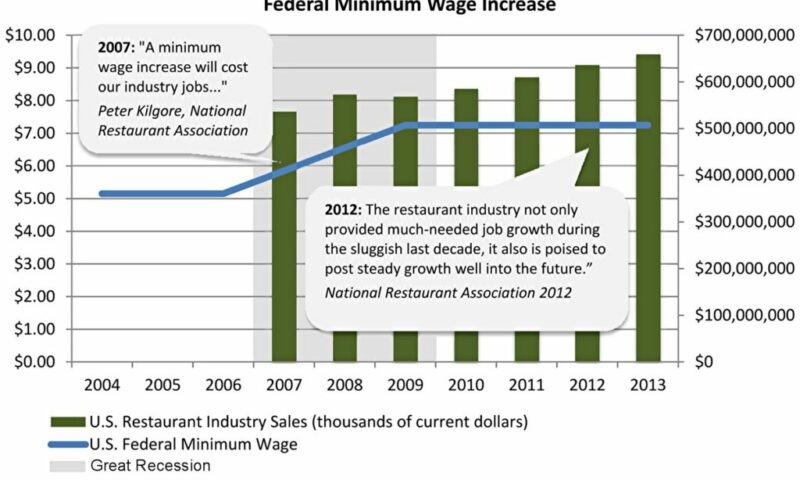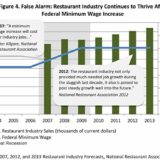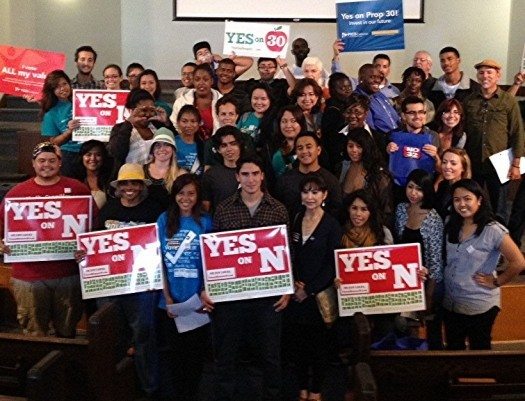

 The regional transportation authority for Los Angeles placed an order for 550 American-made buses last month, Huffington Post reported. The news comes at a time of presidential promises to both ramp up American manufacturing and rethink federal infrastructure spending.
The regional transportation authority for Los Angeles placed an order for 550 American-made buses last month, Huffington Post reported. The news comes at a time of presidential promises to both ramp up American manufacturing and rethink federal infrastructure spending.
The Los Angeles County Metropolitan Transportation Authority (L.A. Metro for short) struck a $305 million deal with a Canadian company, New Flyer Industries, to take charge on the creation of its new fleet of clean-fuel buses. The deal is unique in that it hinged on a commitment from the manufacturer to make the buses in the U.S. and create a certain number of quality jobs. (Most buses serving the U.S. are built outside of the country.)
Despite its base in Winnipeg, Manitoba, New Flyer Industries has factories at three different locations in the states of Minnesota and Indiana. It intends to expand operations at its manufacturing plant in St.
» Read more about: Stop Throwing American Manufacturing Jobs Under the Bus »


Even as the new documentary A Place at the Table highlights in heart-wrenching fashion the plight of 16 million U.S. children who don’t know where their next meal is coming from, some want to end a safety net that for decades has stood between some kids and a slow death from malnutrition – the school meal program. Think starvation can’t happen here, in one of the richest countries on earth? Think again. Not only could U.S. children starve without school meals, but not all that long ago, they did.
Terence Jeffrey, editor in chief of CNSnews.com, argues in an article entitled “Sixty-four Percent of Schoolchildren Fed on Federal Subsidies” that the federal school lunch program is “a weapon liberals employ in their war against the family.” This bizarre idea is based on data he presents which allegedly show a correlation between the increasing number of children eating government subsidized school meals since 1969,
» Read more about: Reporting on Hunger in Schools: Let Them Eat “Balance” »


Hundreds of Waste Management workers belonging to the International Longshore and Warehouse Union (ILWU) struck three facilities Friday morning, March 15, shutting down the company’s East Bay operation in for five hours. The successful job action was made possible by the support from hundreds of Teamster members who honored picket lines and refused to drive the company’s trucks that collect refuse and recycling early each morning from residential and industrial customers. Additional support came from members of the Machinists Union who honored picket lines by refusing to report for their maintenance and repair jobs during the strike.
ILWU members organized their picket lines beginning at 3 a.m. outside the company’s headquarters in Oakland, a recycling facility in San Leandro and the massive regional landfill in Livermore/Altamont. The job action was sparked by the company’s blatant law-breaking against employees, including retaliation that targeted immigrant workers.
In the days leading up to the strike,
» Read more about: ILWU: Waste Management Inc. Targets Immigrant Workers »


After the sequester cut teaching jobs, Head Start spots, senior food programs and access to nutrition assistance for over half a million women and their families, the GOP revealed its brand new short-term budget bill for 2013. Buried on page 221 is a curious clause banning federal funding to ACORN, an anti-poverty group.
The clause reads, “None of the funds made available in this Act may be distributed to the Association of Community Organizations for Reform Now (ACORN) or its subsidiaries or successors.”
But ACORN is long dead. Republican and right wing activists helped kill it in 2009 by smearing it with a video falsely edited to be deliberately misleading and stampeding the Democrats into a bill that stripped ACORN of all federal funds.
The bill that defunded ACORN in 2009 was broader – applying to “any organization” that has been charged with breaking federal or state election laws,
» Read more about: Congress Still Punishes ACORN & Rewards Amgen’s Fraud »


 “Our biggest problems over the next 10 years are not deficits,” the President told House Republicans Wednesday, according to those who attended the meeting.
“Our biggest problems over the next 10 years are not deficits,” the President told House Republicans Wednesday, according to those who attended the meeting.
The President needs to deliver the same message to the public, loudly and clearly. The biggest problems we face are unemployment, stagnant wages, slow growth and widening inequality — not deficits. The major goal must be to get jobs and wages back, not balance the budget.
Paul Ryan’s budget plan — essentially, the House Republican plan — is designed to lure the White House and Democrats, and the American public, into a debate over how to balance the federal budget in 10 years, not over whether it’s worth doing.
“This is an invitation,” Ryan explained when he unveiled the plan Tuesday. “Show us how to balance the budget. If you don’t like the way we’re proposing to balance our budget,


 In a growing sign of civic concern about the lack of employer-provided sick leave, Philadelphia’s city council voted Thursday morning to require most businesses to offer some form of the benefit to their workers. On Wednesday, Portland’s city council also voted to require private businesses to offer sick leave to their workers. The Portland council vote was unanimous; the Philadelphia vote was a veto-proof 11 to six.
In a growing sign of civic concern about the lack of employer-provided sick leave, Philadelphia’s city council voted Thursday morning to require most businesses to offer some form of the benefit to their workers. On Wednesday, Portland’s city council also voted to require private businesses to offer sick leave to their workers. The Portland council vote was unanimous; the Philadelphia vote was a veto-proof 11 to six.
A Los Angeles Times business-section story reported that, prior to the Portland passage, only three other U.S. cities have mandated that employers provide workers with sick leave. (The state of Connecticut also requires it.) However, all employers affected by living wage laws in Los Angeles and Long Beach are also obligated to offer sick leave benefits.
An awareness of links between the spread of workplace illnesses and the lack of paid sick time – which discourages ill workers from staying home —


In her Congressional testimony from 1959, Eleanor Roosevelt noted the repetitive quality of objections raised by minimum wage opponents over the previous five decades. More than 50 years later, it appears that nothing has changed.
Our new report, published with the National Employment Law Project, documents the rhetorical onslaught launched by minimum wage opponents over the past 100 years. Rather than approaching these claims at face value, we step back and review how minimum wage opponents have presented their case through roughly a century’s worth of public statements, congressional testimonies, editorials, media interviews, and other public records, devoting a critical eye to the trajectory of these criticisms over time.
Sample quotes from Consider the Source: 100 Years of Broken-Record Opposition to the Minimum Wage:
1937
“Rome, 2,000 years ago, fell because the government began fixing the prices of services and commodities.
» Read more about: Minimum Wage Foes: Crying Wolf All the Way to the Bank »


 Last week’s headlines highlighted record prices for the Dow Jones stock market average. But who really wins when stock prices soar?
Last week’s headlines highlighted record prices for the Dow Jones stock market average. But who really wins when stock prices soar?
The biggest American winner was Rupert Murdoch, the boss of right-wing Fox News and a global media empire. He made $214.81 million in a single day, according to Forbes magazine. Mexican magnate Carlos Slim did better still, with a staggering $1.09 billion one-day increase in [his] wealth. They, plus the other 98 individuals on Bloomberg’s list of the world’s wealthiest people, made $28.7 billion in a single day.
But what about us? Here are some of the hard economic facts that really matter to the 99 Percent:
» Read more about: The Dow Is Up But the 99 Percent Are Down »


On Sunday the Los Angeles Times published a story about the important successes of campaigns to pass local minimum wage and living wage laws. However, while highlighting new developments that will impact local economies and the lives of workers, the Times missed the real story and forces behind this growing trend.
The piece focused on two ballot-box victories for living wage laws: a minimum wage for hotel workers in Long Beach and a citywide minimum wage increase in San Jose.
“The victories put these two California cities on the cusp of an emerging trend,” wrote Wesley Lowery. “Ballot initiatives, labor experts say, have the potential to rewrite labor’s playbook for how to win concessions from management.” Throughout the piece, Lowery presented the minimum wage ballot measures as a tactic put in place and managed from behind the scenes by labor leaders.
In fact,
» Read more about: L.A. Times Misses the Story Behind Living Wage Campaigns »
In the previous week we reposted this fact-packed, viral video (more than four million views at last count) about economic inequality in America. Its deft use of graphics makes this a handy resource — and worth a second look.